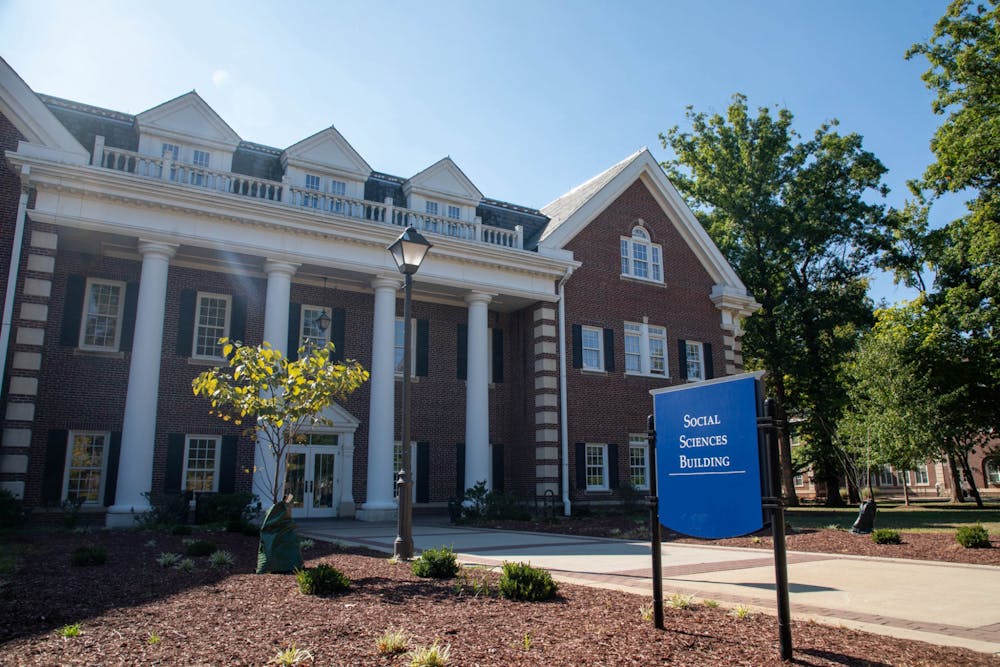By Kate Zydor
News Editor
The College’s Department of Psychology has adopted a new cohort advising model, grouping advisees and assigning them to an advisor based on class year. Full-time faculty members within the department now work exclusively with first-year, sophomore, junior or senior students.
Alongside the updated advising model came the appointment of a new department chair, Shaun Wiley, who stepped into the role on July 1. This followed the departure of the former department chair, Jason Dahling, who is currently on sabbatical.
“The benefits of the new model are that advisers can focus on the unique issues that face their cohort,” said Wiley. “They can ask questions, share information and give guidance that is specific to a particular cohort at a particular developmental stage.”
Before the implementation of this model, advisees were, for the most part, randomly assigned to advisors. Students with specializations, however, were assigned to advisors who work in their field of interest. This burdened professors of industrial-organizational and clinical psychology, the most popular specializations, according to Wiley.
“The [psychology] professors all genuinely care about their students and want to help us,” said Hannah Tobin, a sophomore psychology major. “My only complaints have to do with them having to overload on advisees, which makes it stressful for faculty and students.”
As of this fall, faculty members John Ruscio, Andrew Leynes, Jean Kirnan and Jason Dahling are on sabbatical, conducting research in their scholarly capacity as faculty members of the College.
“With about 800 majors and 13 full-time tenure track faculty advising, most faculty members have just over 60 advisees this term,” Wiley said. “This is due to the popularity of our major, which has grown in recent years, and recent retirements and sabbaticals.”
When the four professors return from sabbatical, the number of advisees each faculty member is responsible for will decrease to approximately 53 in spring 2025 and then 47 in fall 2025, according to Wiley.
According to Wiley, faculty members will follow their advisees throughout their undergraduate careers, from freshman to senior year, aligning with the best practices of other New Jersey colleges and universities.
“Research suggests that [this model] is more effective in building community and ensuring students graduate on time,” said Wiley. “As we build out the model, it will create opportunities for shared events within cohorts.”
The department will collect feedback regarding the model during this semester’s course registration and during the spring 2025 registration period, acknowledging that it will be an adjustment for students.
“I did find difficulties registering for courses [last semester],” said Taylor Aldridge, a sophomore psychology and criminology double major. “I am hoping this new advising model will provide more ease when it comes to registering.”
With this, Wiley said three visiting assistant professors and numerous adjunct professors have been hired to ensure that students do not miss out on opportunities to enroll in their desired courses.
“We have 800 students, all of whom have full and complicated lives,” said Wiley. “It is not mathematically possible for every student to have all of their desired sections within the department every semester…We work very hard to ensure that students do not miss courses that would delay their graduation.”
Alongside the department’s changes to its advising structure, it has commenced its search for a new full-time biopsychology professor and a tenure-track assistant professor in clinical and counseling psychology. Both faculty members will begin in fall 2025, Wiley said.
“My goal is for this to continue to be the best psychology department at a public college or university in the state of New Jersey — really the whole northeast,” said Wiley.
This will be maintained by continuing to offer opportunities for experiential learning in psychology, according to Wiley. Additionally, he is spearheading the department’s objective to plan further ahead in its course scheduling.
“I know these are anxious times — in the world, in the nation, at TCNJ,” said Wiley. “You have a wonderful group of faculty at TCNJ who think about you all the time. The ride won’t always be smooth, but we’ve got you.”







